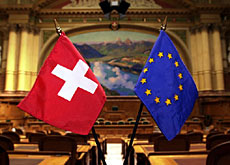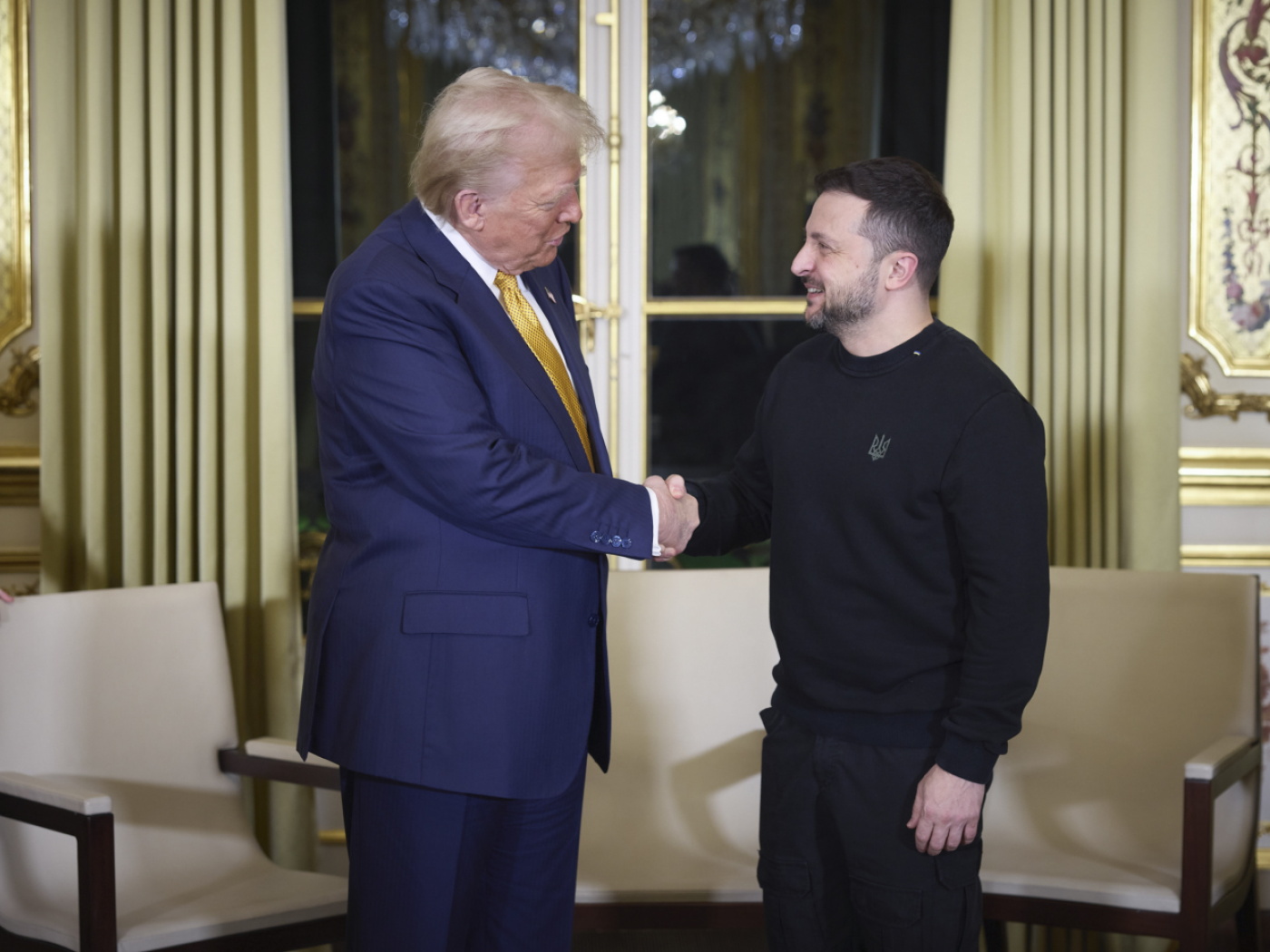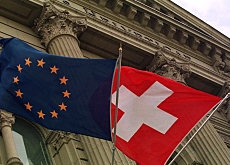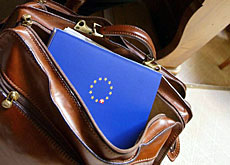Where to now for Swiss-EU relations?

After voters agreed to sign up to two key European Union's treaties this year, Switzerland is expected to clarify its future position with Brussels in 2006.
The EU is urging non-member Switzerland to decide what kind of relationship it wants with the 25-nation bloc in the long term.
The Swiss government plans to publish a report on that very question in 2006. In theory, the options range from doing very little – adding a few more treaties to two packages of bilateral accords already agreed – to full membership, which is a complete non-starter as far as the Swiss electorate is concerned.
More likely is a “framework agreement”, which would define more precisely how existing treaties are implemented, and lay the ground for closer ties later on.
The past year has been a surprising smooth one in Swiss-EU relations. The usually euro-sceptical Swiss voted convincingly to join the Union’s Schengen and Dublin treaties governing cross-border police cooperation and asylum, and they also agreed to open gradually the labour market to nationals of the EU’s newer member states.
For once, news from Switzerland brought some cheer to Brussels, where Eurocrats at the time were grimly watching the French and the Dutch tossing out the EU constitution.
“Hats off to the Swiss”
“Hats off to the Swiss system of direct democracy in the debate on Europe and the two referendums,” says Diana Wallis, the Euro-MP who chairs the committee for relations with Switzerland.
“But now Bern must take time out to consolidate and reflect, just as the EU is currently doing with regard to its constitution.”
The coming year may see talks on the Galileo satellite navigation system or the services dossier, neither of which was covered by the first or second series of bilateral agreements. But Wallis doesn’t expect “anything substantial”.
She sees the merits of a framework agreement, which “would help to simplify daily administration for both parties.” But, Wallis repeats, “it will not be anything substantial”.
The possibility of a framework agreement has already been raised in the Swiss parliament, in 2002, and it also appeals to the Swiss business federation, economiesuisse.
“However, we are favourable to a framework agreement only if it consolidates and improves the working of the treaties signed to date,” explains Stefano Modenini, from the federation’s Lugano headquarters.
He stresses that an agreement of this type must not be allowed to turn Switzerland into a satellite of the EU.
European question “settled”
“First, though, we have still to ratify the second set of bilateral agreements,” says Modenini. “We also need to gather information on how these agreements are working. As far as we are concerned, the European question is settled for the next ten years.”
Nevertheless, Modenini thinks that Switzerland could engage in fresh negotiations in a couple of years’ time, at least regarding the transmission of electricity or Galileo, which are already on the political agenda.
Adrian Sollberger of Bern’s EU integration office says the Swiss government’s priorities are clear.
“The entry into force and implementation of all existing agreements, examination of new negotiating points [the electricity market, Galileo, the health system], and the report on Europe in the first half of the year.”
The way forward
That report will consider three possible ways forward. One is to stick to the “bilateral” route by initiating fresh negotiations on other treaties, and the framework agreement. Another is multilateral collaboration, modelled on the failed 1992 plan for an “Economic Area”. And, finally, there is full EU membership.
Sollberger emphasises that both sides are ready and willing to discuss a more far-reaching framework agreement. This would “facilitate the bilateral approach and build a platform that would strengthen the political dialogue between Switzerland and the EU”.
Work has already started – at the Swiss Mission to the EU in Brussels, preparatory talks about electricity, Galileo and the health system are underway.
Spokesman Hanspeter Mock says a framework agreement would likely prove advantageous for both sides given that EU law is evolving all the time and the agreements – some of which date from 1999 – have to be periodically updated.
In 2006, back home in Switzerland, the event of greatest importance will undoubtedly be the publication of the federal government’s report, due before the summer.
Already the political parties are defining their positions. The centre-left Social Democrats are preparing to champion full EU membership, while the rightwing Swiss People’s Party is determined to resist any further rapprochement with Brussels.
swissinfo, Mariano Masserini
In June and September, Swiss voters came out in favour of government proposals to work closely with the EU on crime fighting and asylum, and to open gradually the labour market to nationals of the EU’s newer member states.
Relations with the EU are defined by two packages of bilateral treaties.
To improve the working of these agreements, which cover several areas, the possibility of a “framework agreement” is being mooted.
Before the summer, the government plans to publish a report on relations between Switzerland and the EU.

In compliance with the JTI standards
More: SWI swissinfo.ch certified by the Journalism Trust Initiative











You can find an overview of ongoing debates with our journalists here . Please join us!
If you want to start a conversation about a topic raised in this article or want to report factual errors, email us at english@swissinfo.ch.